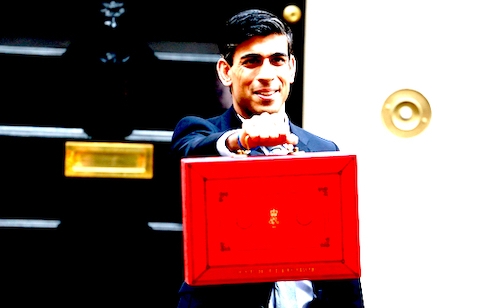Leading Financial Planners and wealth managers expect only modest changes from the Budget which most see as neutral or mildly positive.
Mike Seagrove, Financial Planner at Albert Goodman, believes the prospects for Financial Planning remain broadly positive.
He forecast: “Financial planning will remain largely unchanged over the next 12 months as Capital Gains Tax, which was tipped to increase, escapes changes.
“The Pension Lifetime Allowance is frozen, as are Personal Allowance, ISA allowances and the amount you are able to leave on death, before Inheritance tax is payable. Corporation Tax will increase to 25% in 2023 for companies with profits over £250k but will remain at 19% for smaller companies with profits of less than £50k.
“2021 will provide the opportunity to continue to take profits, create capital gains and diversify into other areas, and for business owners, making employer pension contributions may be more attractive for larger companies in the future. With little change and some positive tax treatments still available, clients should seek to take advantage while they can.”
Finn Houlihan, managing director at wealth manager The Arlo Group, said the freezing of tax allowances should nudge more clients to sort out their tax affairs.
He said: “The decision in today’s Budget to freeze a range of thresholds from next year, including for income tax and Capital Gains Tax (CGT), has set a timeline for consumers to get their tax affairs in order. While the Chancellor has not made some of the expected changes to CGT rates and allowances today, we could likely see further changes announced to these taxes in five years’ time. Ultimately, this means consumers have a window of opportunity to reduce any capital gains and they should consider taking steps such as making the most of their annual allowances over the next five years.
“Additionally, the changes in Corporation Tax rates and the freeze in income tax allowances also mean that professional Financial Planning will be more vital than ever for individuals. Business owners with profits at the edge of the £50,000 corporate tax threshold as well as those nearing the higher rate of income tax, will need to think carefully about diverting funds into pension contributions instead. This could help them to avoid paying a higher level of tax than they actually need to by putting aside funds for retirement, making the most of pensions tax relief and reducing tax bills at a time when every penny counts.”
Chris Halliwell, wealth planner at Sanlam Wealth Planning, was positive about the Budget.
He said: “This was an impressive Budget from the Chancellor. He had to dance along the tightrope of being fiscally responsible whilst being generous enough not to crush any recovery. There was little in the way of direct tax increases, and where tax increases were announced he was smart enough to push them out three years from now to give businesses an opportunity to recover.
“Businesses have been hit with a large stick and some small carrots. A rise of over 30% in Corporation Tax, from 19% to 25%, will no doubt come as a shock to businesses, but as the major recipients of the Covid-19 bailouts, they are now being asked to cover the costs.
"There will be an exception for those companies with profits lower than £50,000, but overall, this was a stark and new approach from a Conservative government who are usually unwilling to raise tax on business. There were carrots though: businesses can carry forward £2 million of losses over the next three years, there will be recovery scheme loans from between £25,000 and £10 million and businesses will be able to take advantage of a ‘super deduction’ where they can offset 130% of any qualifying investment to reduce their corporation tax liability, which is a very novel approach to encouraging investment.”

